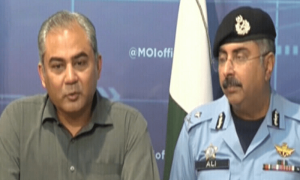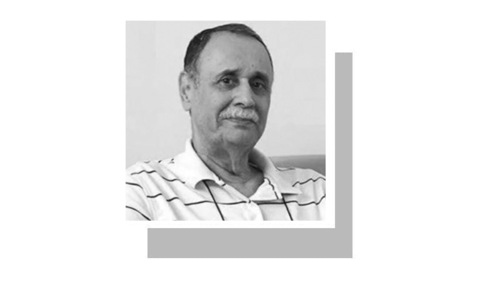LOS ANGELES: Four years after making Oscar-nominated film Restrepo, about soldiers' life on the Afghan frontline, Sebastian Junger focuses on their thoughts on war, addiction and friendship, in a long-awaited followup.
2010's Restrepo, named after a tiny military outpost in northeastern Afghanistan, won an Academy Award nod for US journalist Junger and his British co-director Tim Hetherington.
But Hetherington died while reporting in Libya in 2011, forcing Junger to delay Korengal, which is released in the US this month, and which explores the young veterans' thoughts once back home.
"I really wanted to try to understand more deeply the experience of combat and how it affects young men," Junger told AFP. He and Hetherington spent a year from June 2007 to June 2008 living with troops in Korengal.
"It looked like heaven," said one of the soldiers in the documentary.
But Korengal was also known as the "valley of death," where US troops lost almost 50 men fighting with the Taliban.
Adrenaline and human closeness
After the intense frontline action of Restrepo, the journalists decided to interview the soldiers back at their base in Vicenza, Italy, to explore their thoughts on what they had just been through.
The bottom line? They missed war, said Junger. Most said they would go straight back to Korengal in a heartbeat.
"You're dealing with two powerful drugs, in war. One is adrenaline, obviously. Combat is incredibly intense, and you get exposed to a huge amount of adrenaline.
"And the other is basically human closeness," he said, adding: "They developed a brotherhood that's just not possible to duplicate back home."
Part of the adrenaline came from shooting, a "sport" which the young men admitted made them happy -- a truth which those back home should know about, said Junger.
"If we're going to send young men to war it's very important to understand the entire reality of war... And part is that they really enjoy it," he said.
At the same time the soldiers had to deal with intensely hostile surroundings, extreme remoteness and the monotony and fears of downtime -- all of which led to some serious reflections.
At one point one soldier suggested he was not sure of the morality of what they were doing.
"I don't know if God will forgive me," he said.
"I'm not doing this for recognition from my country. I couldn't give a shit for what people may think, except for those guys standing on my right," he added, referring to his comrades.
Junger and Hetherington had already planned the outline of Korengal when they made Restrepo. But the Briton's death in April 2011 in Libya put it on hold.
Junger instead first made a documentary about his late friend, Which Way Is the Front Line from Here? The Life and Time of Tim Hetherington, and only after that returned to the original project.
The film's release coincides with President Barack Obama's announcement that the US will end its troop presence in Afghanistan by 2016 -- a decision welcomed by Junger.
The war-scarred country is making huge progress, he said. "They just had a very important election, 60% of the Afghan population voted, way higher than this country," he added, speaking in Los Angeles.
"The Taliban has now a huge PR problem. It's easy to say 'We have to attack the occupiers.' But how do you justify attacking a government that the Afghan themselves elected?"
"America made enormous mistakes in that war," said Junger, but added that, looking back, "Afghanistan now is a totally transformed country, and I think it has a real chance for peace."










































Dear visitor, the comments section is undergoing an overhaul and will return soon.